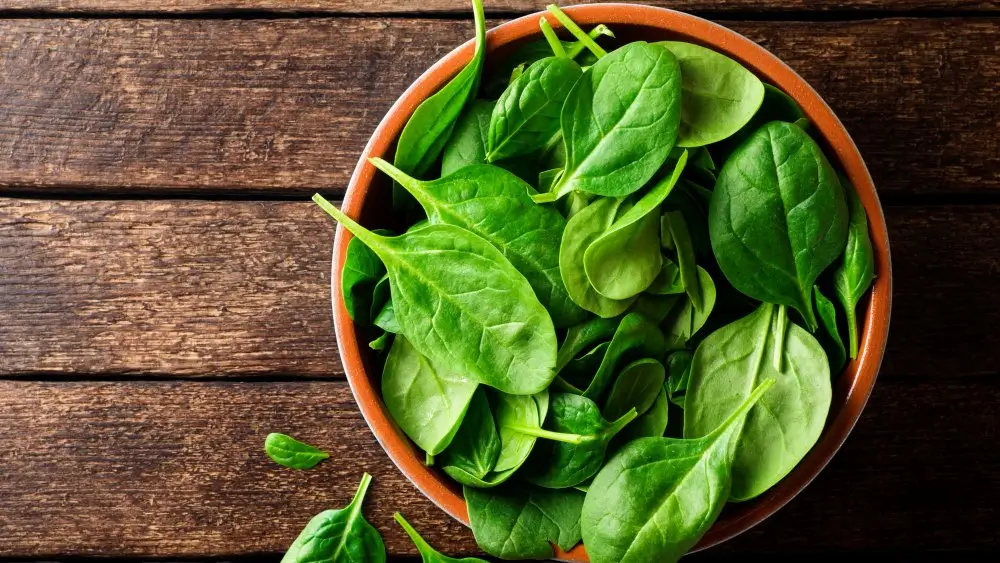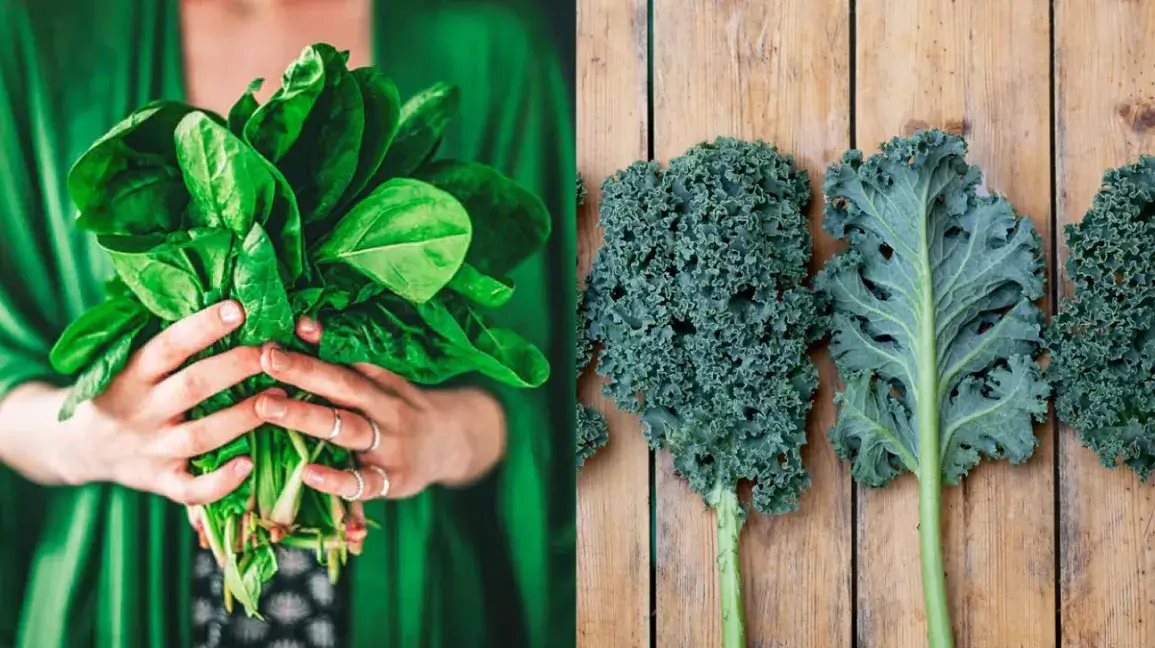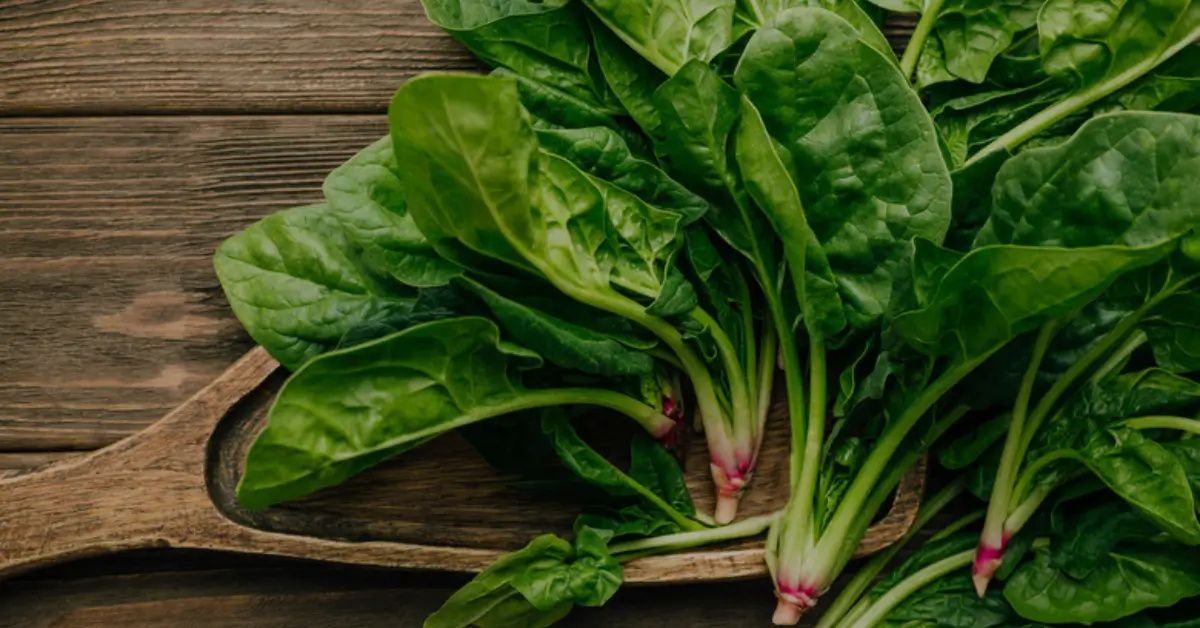Hey there, health enthusiasts! Everyone eats spinach daily, but do you know if it is good for you?
Well, let’s dive into the benefits, side effects, and everything about spinach.
Spoiler alert: it’s not just good; it’s fantastic for most people!
History of Spinach
Before we get into the nitty-gritty, let’s take a quick trip down memory lane.
Spinach originated in ancient Persia (modern-day Iran) and made its way to China by the 7th century.
The Moors brought spinach to Europe in the 11th century. Fast-forward to today and spinach is a global superstar in the Veggie world!
Is Spinach Good for You?
The simple answer is a resounding yes! Spinach is incredibly nutritious and packed with numerous vitamins, minerals, and antioxidants that can benefit your health.
It’s low in calories but high in nutrients, making it an excellent addition to even the keto diet.
Spinach can help boost your immune system, support eye health, promote heart health, strengthen your bones, and even help with Weight management.
It’s versatile, easy to prepare, and can be incorporated into various dishes.
What’s the Big Deal About Spinach?
Spinach is like nature’s multivitamin but tastier! Check out this nutrient breakdown for one cup (30g) of raw spinach:
| Nutrient | Amount | % Daily Value |
| Vitamin K | 145 mcg | 121% |
| Vitamin A | 2813 IU | 56% |
| Folate | 58.2 mcg | 15% |
| Vitamin C | 8.4 mg | 14% |
| Manganese | 0.3 mg | 13% |
| Magnesium | 23.7 mg | 6% |
| Iron | 0.8 mg | 4% |
| Potassium | 167 mg | 4% |
And all this goodness comes in at just seven calories!
10 Health Benefits of Spinach
Alright, let’s get to the good stuff.
Here are ten health benefits of spinach that’ll make you want to add it to every meal:
- Eye Health Booster: Spinach is loaded with Lutein and zeaxanthin, two nutrients that are like sunglasses for your eyes. They help protect against cataracts and age-related eye problems.
- Heart Helper: Spinach’s nitrates can help lower blood pressure, while fiber helps keep cholesterol in check. It’s like a love note for your heart!
- Inflammation Fighter: Packed with antioxidants, spinach helps fight inflammation. This could mean less risk of chronic diseases like diabetes and cancer.
- Bone Strengthener: With loads of vitamin K, calcium, and magnesium, spinach is like a support beam for your bones.
- Immune System Sidekick: The vitamin C in spinach gives your immune system a high-five, helping you fight off those pesky colds and flu.
- Brain Booster: Some studies suggest that the nutrients in spinach help keep your brain sharp as you age. Who doesn’t want to be a smarty-pants?
- Skin Savior: Spinach’s benefits for the skin are pretty impressive. Its vitamins and minerals can help give you that healthy glow we crave.
- Muscle Builder: While it won’t give you Popeye arms overnight, the protein and iron in spinach support muscle growth and function.
- Digestive Aid: Spinach’s fiber helps keep things moving. It’s like a broom for your insides!
- Energy Enhancer: Iron-rich spinach helps carry oxygen around your body, potentially boosting energy levels.
Spinach Benefits for Men

Fellas, spinach has some unique perks just for you:
- Prostate Health: The antioxidants in spinach, particularly beta-carotene, may help reduce the risk of prostate cancer.
- Testosterone Boost: Some studies suggest that the magnesium in spinach could help maintain healthy testosterone levels.
- Fertility Support: Spinach contains folate, which is crucial for sperm health. It may help improve sperm quality and reduce the risk of congenital disabilities.
- Muscle Recovery: Spinach’s antioxidants can help reduce exercise-induced oxidative stress, potentially speeding up muscle recovery after workouts.
- Hair Health: The iron and vitamins A and C in spinach support healthy hair growth and may help prevent hair loss.
Is Spinach Good for Weight Loss?
Yes, spinach can be a helpful addition to your weight loss efforts for a couple of reasons:
- Low in calories, high in fiber: A cup of spinach only has around seven calories, but it’s packed with fiber. Fibre keeps you full for longer, which can help you avoid overeating throughout the day.
- May curb appetite: Studies on spinach extract have shown promise in reducing appetite several hours after a meal.
Here’s a YouTube video about the nutritional benefits and properties of spinach, and how it can help to lose weight.
While spinach can be helpful, it’s not a magic bullet for weight loss. To lose weight healthily, you’ll need to create a calorie deficit by burning more calories than you consume. This can be achieved through a combination of diet and exercise.
Side Effects of Spinach
Now, wait to make spinach smoothies. While it’s generally excellent, there are some side effects of spinach to keep in mind:
- Kidney Stone Risk: High oxalates can contribute to kidney stones in some people.
- Blood Clotting Issues: Watch out for vitamin K interference if you’re on blood thinners.
- Tummy Troubles: Too much spinach can cause gas and bloating in some folks.
- Iron Overload: Rare but a concern for people with hemochromatosis.
Who Should Not Eat Spinach?
While spinach is excellent for most people, some should be careful:
- People prone to kidney stones
- Those on blood-thinning medications
- Individuals with certain types of anemia
- People with hemochromatosis
Chat with your doctor before going spinach-crazy if you fall into these categories.

Benefits of Eating Spinach Every Day
For most people, eating spinach every day is a great idea! Think of better skin, stronger bones, improved digestion, and a healthier heart. Just remember to mix it up with other veggies, too.
Spinach Varieties
- Baby Spinach: Young, tender leaves perfect for salads and smoothies.
- Savoy Spinach: Crinkly leaves with a slightly bitter taste, great for cooking.
- Semi-Savoy Spinach: A hybrid with slightly crinkled leaves, versatile for all uses.
How to Get More Spinach in Your Life
- Smoothie Booster: Blend with fruits for a nutrient-packed drink.
- Salad Star: Use your favorite salad combos as a base.
- Sauté Sensation: Quick-cook with garlic for a tasty side dish.
- Egg-cellent Addition: Fold into omelets or frittatas.
- Pesto with a Twist: Blend into your pesto for extra nutrients.
- Soup Supercharger: Stir into soups before serving.
- Pizza Topper: Sprinkle on pizza for a healthy kick.
Choosing and Storing Spinach
- Buy Local: Look for locally grown spinach to reduce transportation impact.
- Go Organic: Choose organic when possible to avoid pesticides.
- Proper Storage: Store in a plastic bag with a paper towel in the fridge. Use within 3-5 days.
- Wash Just Before Use: To prevent spoilage, only wash spinach when ready to eat it.
Spinach vs. Other Leafy Greens
While spinach is incredible, how does it stack up against other greens?

- Kale: Higher in vitamins A and C, but spinach wins for folate and iron. Check out some more health benefits of kale.
- Swiss Chard: More vitamin A, but less folate than spinach.
- Arugula: Packs more calcium but less iron than spinach.
Each has its strengths, so mix them up for a nutrient bonanza!
Top 10 Superfoods and Their Amazing Benefits
Summary
Absolutely! For most people, the benefits of spinach far outweigh the potential side effects. It’s nutrient-dense, versatile, and supports everything from your brain to your bones.
Remember that no single food is a magic bullet for health. Spinach is fantastic, but it’s just one part of a balanced diet. So go ahead, channel your inner Popeye, and enjoy your spinach. Just don’t eat it straight from the can, okay?
Stay healthy, and stay green!

